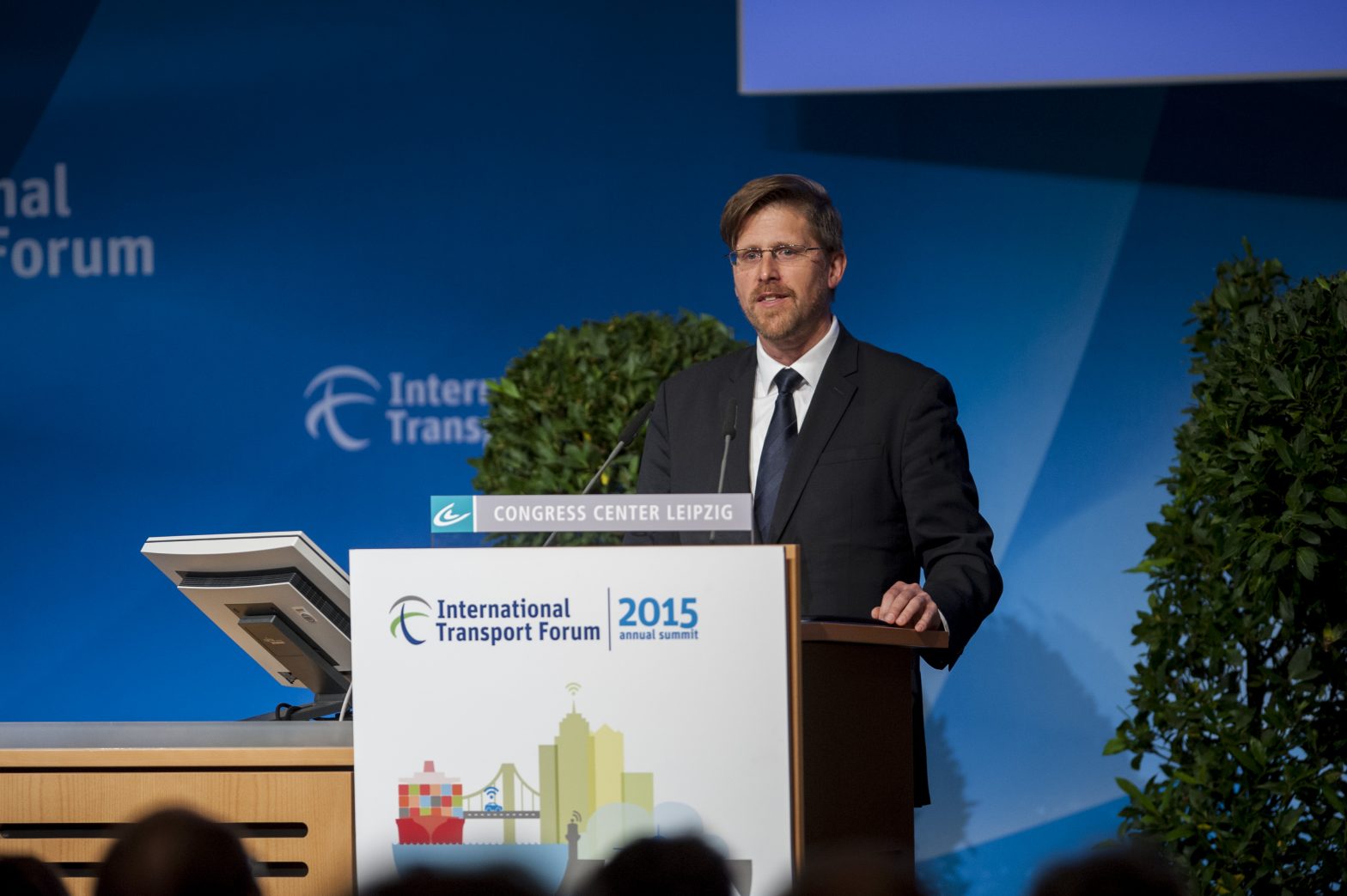
Photo: 18010101180_7b45674171_o
Can blockchain technology help gridlocked cities?
13 November 2018
by Adam Pitt
A senior official at the International Transport Forum has said blockchain technologies could improve the way transport data is shared and help cities avoid a “platform war” between ridesharing firms.
Speaking to Cities Today, innovation and foresight adviser Philippe Crist also explained that while dominant now, the platform model adopted by the likes of Uber, Lyft, and Didi Chuxing would serve cities better if viewed as “a transitional phase” in the evolution of urban mobility solutions.
“Advances in distributed ledger technologies mean cities are now able to think beyond [centralised] platform-based networks, to meshed ones, where all operators have the same access to information and the ability to enter ‘on-the-fly’ contracts to carry out services specified by consumers,” he said.
His comments come as the popularity of ridesharing continues to grow around the world, with some estimates valuing the global industry at US$148.7 billion–more than the GDP of Angola–by 2024.
The addition of e-scooter and bike-sharing schemes to existing car-based services promises further convenience for consumers in the short term. Behind the scenes, open data initiatives in forward-thinking cities like Helsinki have attracted international attention as leaders seek to encourage healthy competition.
Yet, while cities and consumers may have benefitted from the early success of commercial and non-commercial programmes, questions continue to surround the influence of the so-called ‘walled gardens’ that are being created as operators protect their data, revenue, and market share.
The concept of walled gardens traditionally refers to restrictions placed on information using closed technology platforms. It has also been used to describe products that can only be used in conjunction with accessories, such as a mobile device and charger.
While this approach appears to make good commercial sense, Crist suggested that the existence of walled gardens raised “questions about how far [the platform] model can go”, though he is certain they will remain relevant.
“Overcoming platform monopolies doesn’t mean you can’t have certain platforms; it just means anyone else can come up with a platform using the same information,” he said.
“In this sense, [businesses] are not competing on access to data or constrained access to services, they’re competing on service quality, and how well they are able to provide quality to either a large or a niche public audience.”
Crist, who earlier this year contributed to an OECD report on the potential for distributed ledger technologies to support coordinated urban mobility services, said cities would need to agree on common and consistent set of data points and ensure that all operators make this data available through an open API.
Other prerequisites include consensus towards using a common coding language and a robust format for digital identification.

The need for more open and consistent data is echoed by Johan Herrlin, CEO at Ito World, who said that differing attitudes towards data may be stopping some cities from achieving their full potential.
In a separate interview with Cities Today, he also stressed that while “open data is often necessary, it isn’t sufficient to deliver a quality product” to the customers that rely on the real-time data the company provides.
“In the UK, to transform operational data into detailed navigable information we have to make around 130,000 changes just to the static scheduled data every time we bring it through our systems,” he said.
“This information is then combined with real-time data and arrival time predictions and sent to our largest clients every 30 seconds, so there’s a big problem with the quality of data that exists.”
The companies clients currently include UK Department for Transport, Government of the District of Columbia, Google, Microsoft, Atkins, and Hyperloop Transportation Technologies, among others.
Like Crist, Herrlin acknowledges that aggregating information becomes more of a challenge when there are gaps in available data and says inconsistencies in public information offers further justification for cities to intervene to create a level playing field for all operators.
What cities must decide is whether to pursue blockchain technologies, introduce new legislation, or a combination of both.











